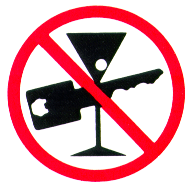Senator Shirley Love: Oops! Should Have Read My Own Bill
Proving the infinite wisdom of always reading any bill before introducing it in the Legislature or voting on the passage of the bill, state Senator Shirley Love, D-Fayette, admitted today he had failed to understand his own bill (SB 437) to create several new series of state license plates.
The most controversial aspect of this bill was a provision to replace the state's "scenic" license plate with a plate showing the New River bridge in Fayetteville with Governor Manchin's new "Open for Business" slogan. After just about everyone in West Virginia ridiculed this idea, Love decided to read his own bill and finally admitted that he really meant to create the "Open for Business" plate as an additional optional plate rather than a replacement for the popular scenic plate--at least that's his current story.
Now, I will be one of the first to tell you the legislative bill drafters often poorly write the introductory versions of bills. But how did someone mistake Senator Love's original idea if that was indeed what he had proposed to the bill drafters? Why did Senator Love not bother to read his own bill before signing his name to it & introducing it, knowing the seemingly less significant issues like this are always the ones that most easily irritate average voters?
Reading the original version of this bill as introduced, even the bill title should have been enough to tell the senator what the bill would do. Reading the full text of the bill, there should have been no mistake that the original version of the bill changed the scenic plate design and did not create a new plate as Senator Love claims.
Now, Senator Love has had SB 437 amended in committee to preserve the current scenic license plate design and create the New River bridge/"Open for Business" license plate as a separate, optional plate. We are still left to wonder what were his true original intentions, given the long delay between the onset of the controversy and Senator Love's action to correct the bill. After all, why did it take nearly two weeks to discover this "error?"
 With no shame and dissent from not even a majority of the Republicans, the House of Delegates voted on Monday to pass
With no shame and dissent from not even a majority of the Republicans, the House of Delegates voted on Monday to pass 

